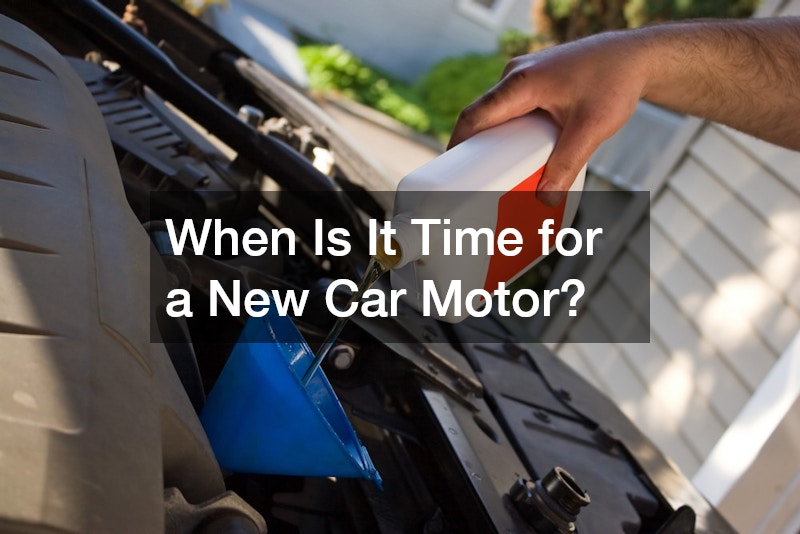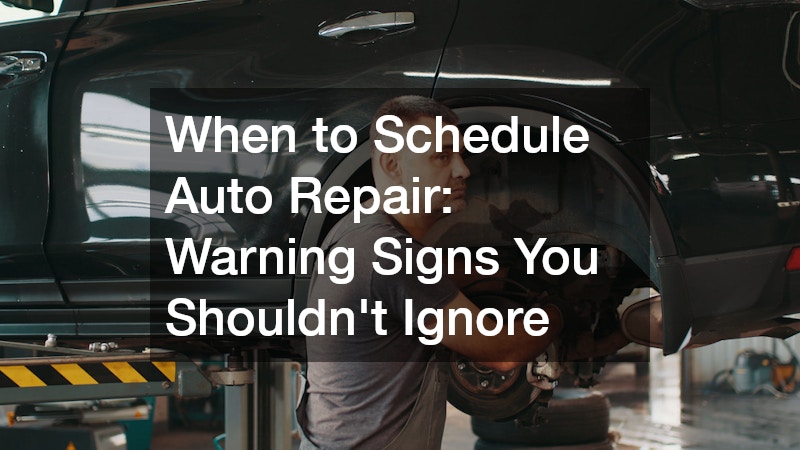
Every car owner dreads the moment they realize something might be wrong with their vehicle’s engine. Whether it’s your trusty old car or a relatively new vehicle, engine problems are both inconvenient and costly. This comprehensive guide will walk you through the various warning signs and indicators that your engine might be failing and when you should consider replacing it. Not all engine issues mean your car is destined for the junkyard, but recognizing the signs early can save you a great deal of money and stress. This is where a reliable car company can assist you, navigating through the myriad of issues and providing viable solutions. In this article, we will address various symptoms such as unusual noises, performance issues, overheating, oil consumption, and more. Whether you’re dealing with a junk car buyer or considering a new car motor, this guide will provide valuable insights to make an informed decision.
Warning Signs Your Engine Might Be Failing

The first step in addressing potential engine failure is recognizing the warning signs. If you notice any unusual behavior from your car, it’s best to consult an expert from a reputable car company for further inspection. Common signs include strange noises, reduced performance, overheating, and excessive oil consumption. Sometimes, getting cash for junk cars might be a better option if the engine problems are extensive. However, in other cases, replacing your engine with a new car motor might extend your vehicle’s life.
One indicator that your engine is in trouble is a consistent decrease in performance. If your vehicle struggles to accelerate, consumes more fuel than usual, or experiences frequent stalls, these are red flags. A thorough check-up by a car company will help determine whether it’s a minor repair or something more serious. Often, these issues point towards an engine nearing the end of its lifespan.
Another warning sign to watch out for is any unusual noise emanating from the engine compartment. Sounds like knocking, tapping, or grinding usually indicate that internal engine components are wearing out or malfunctioning. If you hear such noises, it’s crucial to seek professional advice from your car company immediately to prevent further damage and hefty repair costs.
Unusual Noises: When Engine Sounds Signal Trouble
Every car engine has a symphony it plays while in perfect running condition. However, when an engine begins to emit unusual noises, it’s a clear sign that something is amiss. A car company can diagnose these sounds and explain what they mean for your vehicle. Common issues include knocking, pinging, and grinding, each pointing to different potential problems. Addressing these issues promptly can sometimes prevent a minor issue from transforming into a major repair project.
The sound of knocking usually indicates that there is an issue with the combustion process. This could be due to several factors, including poor fuel quality, advanced ignition timing, or excessive carbon buildup inside the combustion chamber. A car company can perform a detailed diagnostic to identify and fix the root cause. It’s essential not to ignore these noises, as they can lead to severe engine damage over time.
Pinging or detonation sounds usually occur when the air-fuel mixture detonates prematurely in the engine. This is often a result of poor-quality fuel or an advanced ignition timing issue. In such cases, consulting car accident law firms may not be necessary, but reaching out to an engine specialist is crucial. They can help you decide whether to repair or replace the existing engine or perhaps invest in a new car motor.
Engine Performance Issues: Is It Time for a Replacement?
Reduced engine performance is a major concern for many vehicle owners. If your car shows signs of sluggishness, delayed acceleration, or reduced power, it may be time to consult a car company. These symptoms often indicate that your engine is struggling and may need a thorough inspection or even replacement. Frequent visits to a junk car buyer can also signal that your engine might be beyond repair, warranting a new car motor.
One common symptom of engine trouble is a noticeable drop in overall vehicle performance. If your car takes longer to start, accelerates slowly, or fails to reach its top speeds, these are red flags. Consulting with a car company will provide a detailed assessment, suggesting whether it’s time to replace the engine or consider other repair options. Consistently poor performance often indicates deeply rooted issues within the engine itself.
Another sign of engine performance issues is increased fuel consumption. If you find yourself visiting the gas station more frequently, it’s time to have your engine checked. A car company can help identify factors contributing to poor fuel efficiency and recommend whether you need a new engine. Sometimes, regular engine maintenance can significantly improve performance, negating the need for a full replacement.
Frequent Overheating: A Key Indicator of Engine Problems

A consistently overheating engine is a clear indication that something is seriously wrong. When an engine overheats frequently, it places excessive strain on its internal components, leading to accelerated wear and potential failure. Consulting a car company at this stage can provide you with the best course of action, including whether a new car motor is necessary. Overheating can result from numerous issues, including coolant leaks, radiator problems, and excessive friction within the engine.
One common cause of engine overheating is a malfunctioning cooling system. Whether it’s a broken water pump or a clogged radiator, these issues need immediate attention. A car company specializing in car coating and other services can thoroughly inspect the cooling system and make necessary repairs. If overlooked, a consistently overheating engine can suffer irreparable damage.
In some cases, the overheating issue may stem from escalated internal friction. This usually happens when engine oil levels are low or the oil itself is degraded. Regular maintenance, such as oil changes and brake repairs, can prevent these issues from escalating. However, if overheating persists despite regular maintenance, it might be time to consider replacing your engine with a new car motor.
Excessive Oil Consumption: A Major Red Flag
Excessive oil consumption is another significant warning sign that your engine might be failing. If you find yourself constantly topping up your engine oil, it’s an indicator that something is wrong under the hood. While some oil consumption is normal, excessive usage can point to deeper issues, and seeking advice from a car company becomes essential. In some cases, the best solution might be purchasing a new car motor to replace the failing one.
One primary cause of excessive oil consumption is worn-out piston rings or valve seals. These components are crucial for maintaining oil pressure and preventing oil from leaking into the combustion chamber. Suppose you notice blue smoke coming from your exhaust or consistently low oil levels. In that case, it’s crucial to consult a car company specializing in engine diagnostics and new car motors. Ignoring this problem can lead to severe engine damage over time.
Another factor contributing to excessive oil consumption could be oil leaks. These leaks may occur due to damaged gaskets, seals, or other components. Regular inspections and maintenance, such as brake repairs, can help you identify and fix these leaks before they cause significant damage. Consulting a car company will provide you with the best course of action to address oil consumption issues effectively.
Check Engine Light Won’t Turn Off: What It Could Mean
The check engine light is one of the most dreaded indicators for any car owner. When this light stays on, it signals various potential issues within your engine. While some problems may be minor, others can be severe and require immediate attention. If your check engine light won’t turn off, it’s essential to consult a car company for a detailed diagnostic. In some cases, it might indicate that your engine is nearing the end of its lifespan, necessitating a new car motor.
Several factors can cause the check engine light to stay on, ranging from simple issues like a loose gas cap to more complex problems like a failing catalytic converter. A car company specializing in engine diagnostics can help pinpoint the exact issue and recommend the best action. Sometimes, minor repairs can solve the problem, while in other cases, a more extensive fix might be required.
In some instances, the check engine light could be related to issues with other systems, such as the exhaust or emissions. For example, a malfunctioning oxygen sensor can trigger the light. Consulting specialized services, such as boat motor repair or hydraulic machine troubleshooting repair and maintenance, can help identify whether the problem lies within the engine or another system. If the issue persists, replacing your engine might be the most viable option.
Smoke from the Exhaust: When to Worry About Your Motor

Seeing smoke from your exhaust can be alarming and is often a sign of a deeper issue within your engine. Different colors of smoke, such as blue, white, or black, can indicate various problems. Blue smoke usually signals oil burning within the engine, while white smoke may indicate coolant leaking into the combustion chamber. Black smoke is often a sign of excessive fuel consumption. Consulting a car company can help you identify the cause and determine whether a new car motor is necessary.
Blue smoke from the exhaust usually points to worn-out piston rings or valve seals. These components are crucial for maintaining oil pressure and preventing oil from leaking into the combustion chamber. If you notice blue smoke, it’s essential to consult a car company specializing in engine diagnostics and new car motors. Ignoring this problem can lead to severe engine damage over time.
White smoke from the exhaust often indicates a coolant leak, which can be a serious issue. If coolant enters the combustion chamber, it can cause significant engine damage. Regular maintenance and inspections, such as brake repairs and hydraulic machine troubleshooting repair and maintenance, can help prevent these issues. However, if you’re experiencing persistent white smoke, it might be time to consider replacing your engine with a new car motor.
Dramatic Drop in Fuel Efficiency: Could Your Engine Be the Cause?
A dramatic drop in fuel efficiency is often a sign that your engine is not operating optimally. If you notice that you’re refueling more frequently than usual, it’s time to have your engine inspected by a car company. Poor fuel efficiency can be caused by several factors, including clogged fuel injectors, faulty oxygen sensors, or worn-out spark plugs. Addressing these issues promptly can help improve your vehicle’s performance and save you money on fuel costs.
Clogged fuel injectors are a common cause of reduced fuel efficiency. These injectors are responsible for delivering fuel to the engine, and when they become clogged, the engine cannot perform at its best. A car company can clean or replace the fuel injectors, improving fuel efficiency and overall engine performance. If the problem persists, it might indicate that your engine is nearing the end of its lifespan, requiring a new car motor. If you decided it’s time to update your vehicle, consider adding a custom rim for a unique appearance.
Faulty oxygen sensors can also contribute to poor fuel efficiency. These sensors monitor the amount of oxygen in the exhaust and help regulate the air-fuel mixture. A malfunctioning sensor can cause the engine to run rich or lean, leading to increased fuel consumption. Consulting an auto repair expert will help identify and fix this issue. If the problem continues, replacing the engine might be the best solution, especially if the vehicle has high mileage.
Expensive Repairs: When Replacement Is More Cost-Effective
When faced with expensive repairs, it’s crucial to evaluate whether replacing your engine is a more cost-effective solution. If your engine requires frequent and costly repairs, it might be more economical to invest in a new car motor. Consulting a car company can help you determine the best course of action. They can provide a detailed assessment of your engine’s condition and offer recommendations based on the cost of repairs versus replacement.
In some cases, the cost of a major repair, such as a blown head gasket or a cracked engine block, can be prohibitively high. If your engine has significant internal damage, the repair costs may exceed the vehicle’s value. In these situations, a car company specializing in auto repair can help you decide whether to proceed with the repair or opt for a new engine. Often, replacing the engine can extend the life of your vehicle and provide better performance.
Another factor to consider is the age and mileage of your vehicle. If your car has high mileage and has required numerous repairs, it might be time to invest in a new car motor. High mileage can indicate that the engine has reached the end of its useful life. Consulting a car company can help you weigh the benefits of a new engine versus continuing to invest in costly repairs.
High Mileage: Does Your Car Need a New Engine?

High mileage is a significant indicator that your engine might be nearing the end of its lifespan. If your vehicle has accumulated many miles and is experiencing performance issues, it might be time to consider a new car motor. Consulting a car company can provide a detailed assessment of your engine’s condition and recommend the best course of action. High mileage often means that the engine components have undergone significant wear and tear, necessitating a replacement.
One common issue with high-mileage engines is reduced compression. Over time, the piston rings and cylinder walls can wear out, leading to a decrease in compression and overall engine performance. A car company can perform a compression test to determine the extent of wear and recommend whether a new engine is necessary. If the compression is significantly low, replacing the engine might be the best solution to restore your vehicle’s performance.
Another factor to consider with high-mileage engines is the potential for increased maintenance and repair costs. As the engine accumulates more miles, the likelihood of components failing increases. Regular maintenance, such as brake repairs and hydraulic machine troubleshooting repair and maintenance, can help prolong the engine’s life. However, if your vehicle requires frequent repairs, it might be more cost-effective to invest in a new car motor. Consulting a car company can help you make an informed decision based on the condition of your high-mileage engine. Additionally, having solid garage doors can protect your car from damage.
In conclusion, recognizing the warning signs of engine failure and addressing them promptly can save you significant time, money, and stress. This comprehensive guide has discussed various symptoms, such as unusual noises, performance issues, overheating, excessive oil consumption, and more. Consulting a reliable car company for regular maintenance and inspections can help identify and resolve potential issues before they escalate. In some cases, investing in a new car motor might be the best solution to extend the life and performance of your vehicle. Whether you’re dealing with high mileage or expensive repairs, consulting with experts in auto repair and engine diagnostics can provide valuable insights to make an informed decision. Remember, taking proactive steps can prevent minor issues from becoming major problems, ensuring your vehicle remains reliable and efficient for years.




